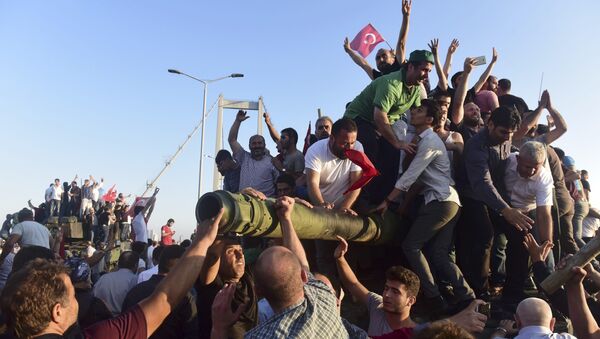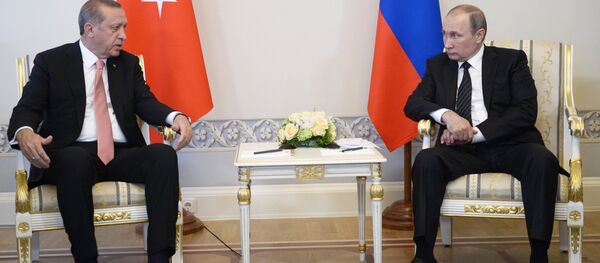In an interview with Sputnik, political scientist Erhan Akdemir commented on this statement, saying that the tension in relations between Turkey and the EU after the attempted military coup has continued to rise.
"There is a split in the relations between Turkey and the EU. From the very beginning the EU has not realized the seriousness of the attempted military coup in Turkey," Akdemir told Sputnik.
"The loss of confidence and vigilance toward the current Turkish authorities has led to the situation in which Brussels has not reacted to the coup attempt in Turkey as tough as Ankara expected. This, in turn, has caused a wave of indignation among the Turkish public, which has become even more confident about the EU policy of double standards," Akdemir said.
"I would like to emphasize once again that this situation has arisen due to the lack of confidence and a serious crisis that has gripped the relations between Turkey and the EU in the last five to ten years," he added.
There have been clashes in Germany between supporters of Erdogan and Gulen, with nearly 40,000 pro-Erdogan fans staging a rally in Cologne in support of the Turkish president. The tensions could not have come at a worse time for German Chancellor Angela Merkel, who is still trying the keep the controversial EU-Turkey migrant deal on track.
"EU is mostly worried about the refugee issue. In this regard, Turkey is very important for Europe. In turn, the EU countries are important trading partners for Turkey. I think that taking this into account the parties are now looking at each other, weighing all the "pros" and "cons" of bilateral relations and showing distrust of each other at the highest level. At the very least, this process should bring a more or less clear understanding of the spheres where the parties could cooperate and where not," the expert said.
Under the deal, the EU was due to pay Turkey — initially — US$3.95 billion to bolster its refugee camps and accept "irregular" migrants denied asylum in Greece in return — on a one-for-one basis — for Syrian refugees in Turkey being relocated in the EU. The EU, for its turn, was supposed to grant Turkish citizens visa-free access to the EU by the end of July and accelerate its accession to becoming a full member of the Union.
The deal had already hit trouble over Erdogan's increasing grip on power, crackdown on opposition parties and the media as well as criticism of his human rights record. Since the attempted coup, however, his massive suppression of those associated with the coup — the judicial system, the military and the police — have caused further tensions between Turkey and the EU.
"It seems that the issues of a refugee deal and the visa-free regime between the two countries can either bring relations between Turkey and the EU to a new level, or completely destroy them. In the event of a further deterioration of the relationship between the two parties, the negotiations on Turkey's accession to the EU are likely to be frozen," the expert said.



